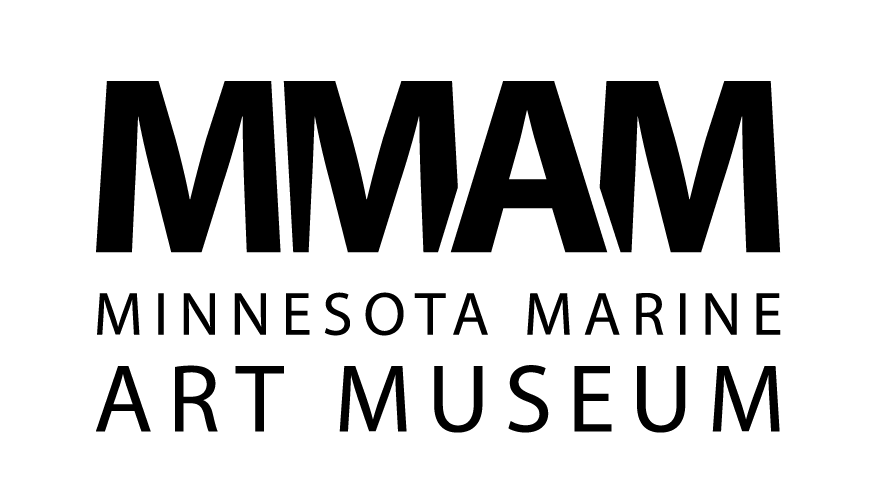Friday, May 17 - Saturday, May 18 | 9am - 5pm each day
Workshop: $230 per person | Member Rate: $185
How are the clothes we wear, blankets we wrap ourselves in, and textiles all around us informed by our relationship to water? Consider these questions and your own relationship to the land as you learn the basics of natural dyeing and fiber art skills with a stellar group of instructors for a very special Weaving Water Workshop. Karen Goulet (White Earth Nation), Dr. Tammy Greer (Houma), and Weaving Water Workshop founder Sarah Nassif (European descent) work to reconnect themselves and others with both plants and water as artists, community organizers and educators. Hear how their cultural backgrounds play a role in their fiber art and plant passions, and how deep relationships to plants can connect us to each other and help us care for the environment together.
In this workshop you will learn about local and invasive plant dye sources and their ecology and significance, work with an organic indigo vat to dye fabric shades of blue, and try your hand at different manual methods of spinning, weaving and dyeing. We will focus on process more than product, and we will create both individual and collaborative work that brings our learning to life.
There will also be a public workshop Weaving Water: A Public Art Project by Sarah Nassif, on Saturday, May 18 from 3-5pm at MMAM.
Register for the workshop
Refund Policy: Registration is refundable until April 27, 2024. Students who cancel their enrollment 21 days or less prior to the first day of the workshop are not eligible for a refund.
About the artists
KAREN GOULET
Karen E. Goulet (b.1959 ), is a White Earth Ojibwe Band member and is also from Métis, and Finnish people. She is a practicing visual artist, poet, educator, and community sculptor. Water is her first love, first memories, and her medicine. Water permeates her narratives with waterways serving as the vital connection to family and cultural roots. She serves as the Miikanan Gallery Program Director at the Watermark Art Center in Bemidji, Minnesota, and is the recipient of grants from the Minnesota State Arts Board, the Waterers Fellowship, and the Region 2 Arts Council. Karen also played a pivotal role as a pilot artist for the Big River Continuum Project. Her artistic focus revolves around community, environment, and the preservation of culture. Throughout her life, Karen has dedicated both her professional and personal endeavors to the creation, sharing, and encouragement of artistic practice.
Sarah Nassif
Sarah Nassif is a self-taught social-practice artist living in Minneapolis, MN. Born in Anchorage, Alaska in 1973, she grew up near Portland, Oregon, and lived in Colorado, Ireland and around the Pacific Northwest through her 20’s. She received her B.S. in Botany from the University of Washington in 1997 and worked in environmental education, forestry and data analysis before moving to the Twin Cities in 2000. She began her art practice in 2005 in earnest, integrating her botany expertise with her love of all kinds of handcraft.
In her community-engaged art projects, Sarah Nassif connects people, plants and place through sensory exploration of natural and human-built environments, hands-on skills practice, and person-to-person sharing. Her work incorporates media across the fiber art spectrum, natural dyes and inks, mapping, sound and video. She has been the recipient of grants from the Minnesota State Arts Board, Metro Regional Arts Council, and Jerome Foundation.
Website:sarahnassif.com/. Instagram:@sarahjnassif
Tammy Greer, Ph.D.
Tammy Greer, Ph.D. (United Houma Nation) is a faculty member in the School of Psychology and Director of the Southern Miss Center for American Indian Research and Studies. She is faculty advisor to the Golden Eagles Intertribal Society, a Native focused student group who works with the Center to host a yearly powwow, Native Ways School Days and other Native-focused events on campus. In 2005, Dr. Greer, along with other tribal folks and Southern Miss faculty, built a 1000 square foot native plant forest Garden on the Southern Miss Campus. The garden, in the shape of a Medicine Wheel, nurtures hundreds of plants that our southeastern tribes used for food, drink, building materials, weapons, dyes and medicine. With the help of those garden plants, Dr. Greer is bringing back aspects of Southeastern Native material culture that have been sleeping including native plant dyes, cordage and pigments. She gives dye workshops across the Southeast and has demonstrated at the New Orleans Jazz and Heritage Festival. Dr. Greer is a member of the WECAN group ~ Okla Hina Ikhish Holo (People of the Sacred Medicine Trail), a group of indigenous folks who are building gardens and food forests along historical Southeastern trade routes to address food insecurity. She recently completed a Library of Congress Grant titled, “And We Are Still Here: Indigenous Culture Bearers of the United Houma Nation” with a goal of making Houma material culture visible in a national venue so that Houma youth for seven generations can see and hear their elders speak to Houma experiences and culture. Dr. Greer is trained as a statistician and works with Mississippi INBRE to train Native students to research health issues in our Southeastern tribes. She is Co-PI on an NIH grant titled Okla Achukma (Healthy People) with a goal of integrating spiritual and socio-emotional components that are rooted in culture into typical healthy ways interventions to make those interventions more holistic.
This activity is made possible by the voters of Minnesota through a grant from the Minnesota State Arts Board, thanks to a legislative appropriation from the arts and cultural heritage fund.







